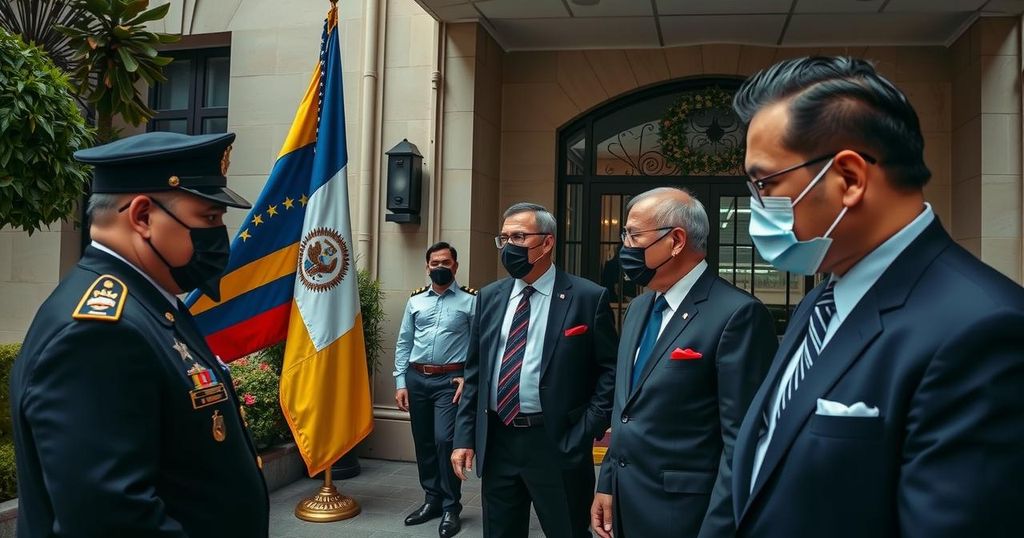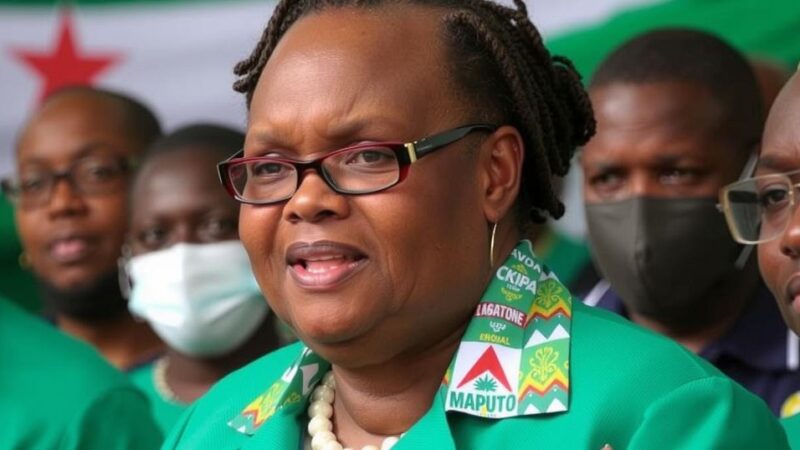Venezuela denies accusations from Argentina regarding the harassment of its embassy in Caracas, related to the refuge of opposition figures. Venezuelan Interior Minister Diosdado Cabello responded to these claims, while Argentina’s government demands protections for its asylum seekers. Diplomatic relationships continue to suffer amid broader political tensions following recent elections.
On Monday, Diosdado Cabello, Venezuela’s Interior Minister, publicly refuted allegations that the Venezuelan government is besieging the Argentine Embassy in Caracas. This denial follows accusations from President Javier Milei’s administration in Argentina, which claims that Venezuela has launched a campaign of intimidation against the diplomatic mission. Amid these tensions, six associates of opposition leader María Corina Machado, including her campaign manager, have sought refuge in the embassy since March.
Cabello, addressing the media during a weekly conference for the ruling Partido Socialista Unido de Venezuela, dismissed Milei’s claims, expressing confusion over the definition of harassment in a diplomatic context. He was quoted as saying, “I don’t know what he calls harassing someone in his Embassy… I really don’t know what he is accusing us of now.” Meanwhile, Argentina’s Foreign Ministry has condemned the situation, alleging that armed troops and street closures around the embassy undermine the security typically afforded to diplomatic premises under international law. Additionally, it called for Venezuela to provide the necessary permissions for those seeking asylum to exit the country safely.
Compounding the diplomatic strain, the Argentine government has reported power outages at the embassy, to which Cabello responded with disdain, stating, “Let them pay for the electricity, let them pay for the services, we are not going to give them anything for free.” He has previously labeled Machado as a “terrorist,” amidst ongoing controversy surrounding the legitimacy of President Nicolás Maduro’s recent election—a result met with skepticism by much of the international community. The situation escalated when Brazil announced its temporary oversight of Argentina’s diplomatic delegation within Venezuela, a decision later reversed by Caracas.
In summary, the situation between Venezuela and Argentina remains tense with significant diplomatic implications. Venezuela’s government firmly denies accusations of harassment, while Argentina continues to defend its diplomatic personnel and calls for the safety of those under asylum. This burgeoning conflict highlights the fragile nature of diplomatic relations in a complex international landscape, especially in the wake of controversial political developments in Venezuela.
The diplomatic relations between Venezuela and Argentina have recently deteriorated, particularly after the election of Javier Milei in Argentina. Accusations of harassment against Argentina’s embassy have surfaced after several associates of opposition leader María Corina Machado took refuge there. The tensions are exacerbated by broader political questions surrounding the legitimacy of Nicolás Maduro’s presidency, with allegations of electoral fraud contributing to the complexity of the situation.
In conclusion, the dispute between Venezuela and Argentina centers on serious allegations of diplomatic harassment following the refuge of opposition figures in the Argentine Embassy. The Venezuelan government maintains its position against claims of intimidation, while tensions are heightened through allegations of power cuts and inadequate security. This ongoing diplomatic saga reflects the intricate political dynamics at play in the region and the challenge of ensuring the safety of diplomatic spaces.
Original Source: www.batimes.com.ar







